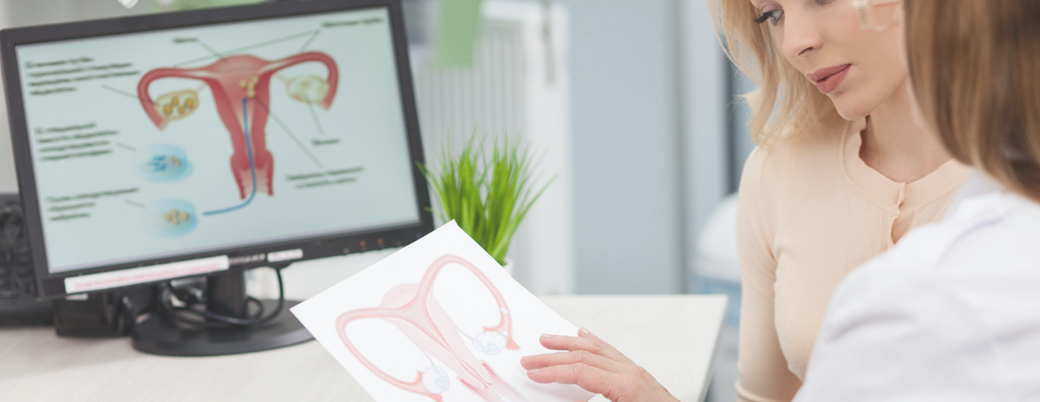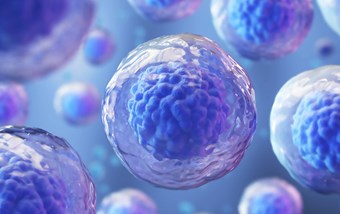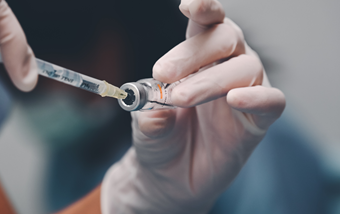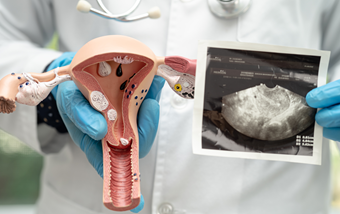If you are struggling with your fertility, the first step is to undergo a series of fertility tests for both you and your partner in order to identify the root cause of the problem. For women, your ovarian reserve is one of the first things to consider when assessing your potential to conceive.
The term ‘ovarian reserve’ refers to the number, and quality, of eggs in the ovaries and thus can often indicate a woman’s reproductive potential.
There are a few tests that can be carried out to determine what a woman's ovarian reserve is, and so we have compiled a list of the most common tests used so that you can have a better understanding of how medical professionals approach identifying the root cause of your fertility struggle.
What is an AMH test and what does it say about my ovarian reserve?
Anti-Mullerian Hormone (AMH) is a hormone produced by the developing follicles in a woman's ovaries. Measuring AMH levels therefore gives an indication of a woman's egg reserve (how many eggs are left in the ovaries). High AMH levels indicate that there are sufficient developing follicles in the ovaries, whereas low levels suggest egg reserves are low. Your AMH levels can be measured via a blood test at any time during your menstrual cycle. AMH naturally decreases with age as the ovarian reserve is depleted. AMH levels are considered ‘satisfactory’ if they are above 21.98 pmol/l, although age and other circumstances have to be taken into account in order to make the most accurate assessment.
Don’t worry if your AMH levels are below this; at abc ivf we treat women with AMH levels of 10 pmol/l. Head over to our eligibility criteria page to understand a little more about the test results you need in order to be eligible for us to support you on your fertility journey here at abc ivf.
What do my FSH levels say about my fertility?
Follicle Stimulating Hormone (FSH) is a hormone released by the brain's pituitary gland with the aim to stimulate the growth and development of follicles within the ovaries. Developing follicles release oestrogen which inhibits the release of FSH, indicating that the
ovary now has enough follicles. Therefore, when FSH levels are high, it indicates that there aren't enough developing follicles in the ovaries and the brain is sending signals to grow and develop more. This is why women with a diminished egg reserve will have high FSH levels and those with good egg reserves have low FSH levels.
FSH used to be the most common blood test used to assess ovarian reserve, however, due to the fact that levels can vary from month to month, we now prefer to test AMH results for a more accurate insight into your ovarian reserve.
What is an AFC test?
Your Antral Follicle Count (AFC) is the number of developing follicles within both ovaries, and therefore is a direct indicator of your ovarian reserve. Your AFC can be monitored using a vaginal ultrasound scan, this is because we count the number of egg-containing follicles directly, as opposed to determining the number of eggs in your ovaries by testing your hormone levels.
Attend our FREE Online IVF Event with Live Nurse Q&A and get your questions answered by a Fertility Nurse Consultant.
ADDED BONUS - everyone who attends our webinar will receive £50 off an Initial Consultation and Scan at abc ivf.

How does my BMI impact my ovarian reserve?
Body Mass Index (BMI) is a measure of body fat based on height and weight. Your BMI is a good indicator of your physical health, which can determine your fertility, and the success rates of fertility treatment. This is because a high BMI in women can impact ovarian function as well as the way that the body responds to medication used in fertility treatment.
We explain a little more about the relationship between your BMI and your fertility in our blog here, so do have a read. But in the meantime, you can check your BMI by using our BMI calculator here.
We hope this has been a useful introduction into understanding your ovarian reserve, and how medical professionals might go about identifying whether your ovarian reserve is impacting your efforts to conceive.
If you are at the start of your fertility journey, we are here to support you. To find out more about the treatment options available to you then book your Ultrasound Scan and Virtual Consultation with us.




